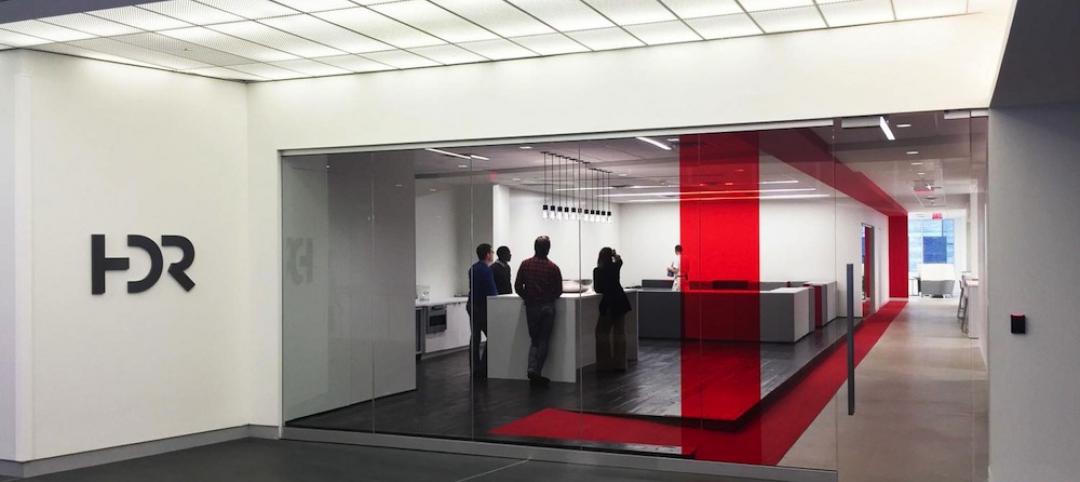The results of the 2011 Emporis Skyscraper Award are now in: 8 Spruce Street in New York City is the winner of the renowned architecture prize for new skyscrapers. Every year, Emporis' international jury (www.emporis.com) rewards ten skyscrapers completed in the previous calendar year. The award is being given for the 12th time.
The winners were chosen from over 220 skyscrapers completed in 2011. 8 Spruce Street, the first skyscraper by the architect Frank Gehry, and also known as The Beekman or New York by Gehry, won over the jury with its magnificent undulating stainless steel facade.
The sculptured form of Skidmore, Owings & Merrill's Al Hamra Tower earned it second place in the ranking. Despite its great height, the skyscraper fits harmoniously into Kuwait City's urban landscape. The tower is engineered to take account of climate conditions: the south facade, with limestone elements cladding a concrete wall, protects the building from the searing desert sun and impressed the jury from both architectural and functional points of view.
DBI Design's Etihad Towers were voted into third place, the jury praising the complex as a particularly harmonious ensemble of buildings. Critical to the decision were the soft, curving contours of the towers: these suggest the shape of sails and are intended to evoke Abu Dhabi's history as a port. The jury of experts also singled out the exceptional facade of silver and blue glass.
8 Spruce Street is now the third New York tower to win the Emporis Skyscraper Award. The very first award (2000) went to Sofitel New York Hotel, while Hearst Tower won the coveted architecture prize for 2006. That makes New York City, the world capital of high-rise architecture, the city to which the Emporis Skyscraper Award has most often been awarded.
Click here to view photos of the winning projects. +
Related Stories
Architects | Mar 11, 2016
German artist recreates Brutalist buildings with LEGO blocks
Arndt Schlaudraff brings the beauty out of the rugged, linear style of buildings most popular a half century ago.
Architects | Mar 11, 2016
Architecture for Humanity rebrands itself as Open Architecture Collaborative
With a new name, logo, and mission, the Open Architecture Collaborative is seeking a fresh start.
Architects | Mar 11, 2016
AIA survey finds many women and minority architects still feeling underrepresented and unfulfilled
Dissatisfaction with “work-life balance” and compensation are cited as reasons why companies’ diversity strategies may be faltering.
University Buildings | Mar 11, 2016
How architects can help community colleges promote community on campus
Even in the face of funding challenges and historic precedent, there are emerging examples of how partnership between two-year academic institutions and designers can further elevate community on campus. CannonDesign's Carisima Koenig has a few key examples.
Architects | Mar 10, 2016
Value engineering: How to manage the process and limit the risk of VE
AEC consultant Steve Whitehorn shares several ways in which architects can be more effective managers of value-engineered change.
Architects | Mar 9, 2016
Two Houston firms merge to form Method Architecture
In mid-2016, Architects-Plus and Three Square Design Group will join to make a studio that will design industrial centers, corporate interiors, breweries, and more.
Hotel Facilities | Mar 7, 2016
Exclusive villas and spa in China will be built at the center of a lake
The only connection between the complex and the mainland will be a narrow pedestrian bridge.
Office Buildings | Mar 2, 2016
HDR redesigns Twin Cities' studio to have coffee shop vibe
With open spaces, huddle rooms, and a design lab, the firm's new digs are drastically different than the old studio, which felt like working in a law office. Design Principal Mike Rodriguez highlights HDR's renovation plan.
Architects | Feb 25, 2016
12 architects selected for 2016 AIA Young Architects Award
Winners include Amy Kalar and Karen Lu, both with HGA, BNIM's Carey Nagle, and MSR Design's Bob Ganser.
Architects | Feb 24, 2016
Is the booming freelance economy a threat to AEC firms?
By shifting the work (and revenue) to freelancers, “platform capitalism” startups have taken considerable market share from traditional businesses.
















